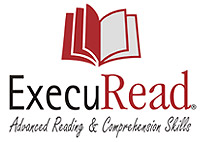News
Are you drowning in “unwanted” / “unsolicited” email? Or are you comfortable now behind the bulwark of your “spam-blocking” software? Is spam a real threat to our society, or no more than mass hysteria designed to promote software sales and force us into having our email censored?
Some bright spark defined spam as “unsolicited” electronic mail. Lesser mortals took this literally – “if I don’t know you and I didn’t ask for it, then it’s unsolicited and I don’t want it.” All too often, the defining criteria of spam is the unsolicited nature of the communication, rather than the content.
Whether we like it or not, we are continually learning new information. And this information emanates from a multitude of sources – press, radio, TV, co-workers, friends and even snail-mail and email. Other than when we actually register for a training course in order to “solicit” learning, 90 percent of new information is going to be “unsolicited”, some of which we don’t want or need, some of which we will use for one purpose or another. And here’s the nub. Will spam-blocking software EVER be able to distinguish “unsolicited and unwanted” email from “unsolicited yet wanted” email?
Latest estimates are that 1 out of every 4 important email messages will not reach the intended recipient. An additional 2 out of every 4 email messages will be blocked by “spam-blocking” software, irrespective of whether the intended recipient could gain intellectual benefit from such mail.
For example. I installed a spam-management program and had it re-direct and store all “unsolicited” and “spam-suspect” email in a separate folder. Over a 10-day period, these were the results – 1470 emails were sent to me and processed. Of these, 200 went through to my regular “inbox” and 1270 were classified “unsolicited” and routed to the “suspect” folder. Of these 1270 “unsolicited” emails, 380 were new business enquiries, requests for further information, business orders and payment advisories. A further 230 emails, although unsolicited, contained new information that I found interesting, informative and relevant to the work I do. Conclusion? The ONLY effective spam-management program is the Human Mind – Mark One.
So why the hype about spam? Two reasons. First, if we can’t manage the volume of email, we either need to increase our information management skills, or reduce the volume. While Noah didn’t try to stop the rain, we have adopted the attitude of trying to avoid the effort of building an Ark. Faced with the reality of the three pillars of knowledge – that which we know, that which we know what we don’t know, and that which we don’t know what we don’t know – we shelve the Human Mind and resort to the age-old cop-out – if I don’t know about it, why should I be concerned!
Second, it’s money. Big business makes money from selling “spam-software”. Big business makes money by limiting the time we spend handling email. And big business now has a mandate to censor our email – to determine what we will read and what we will not. And by implication, if it’s directly related to your job, it’s okay, but if it only has the potential to enrich us, to expand our horizons and general knowledge, and to empower us, it’s suspect.
America became great because of its open-door and open-mind approach. Always seeking new horizons and new opportunities. More recently, a new laager-mentality is evolving – TV boxes that “block” “unsolicited” advertising, Tivo and DVR that enable us to skip the “unsolicited” commercials, email-software to block “unsolicited” messages and even a President and Defense Secretary that admit to not reading newspapers (the reason, according to some sources, being lack of time, while other sources suggest an attempt to avoid “unsolicited” media bias or opinion).
Now is not the time to become ostriches with our heads in the sand, hoping that what we don’t know can’t hurt us. To paraphrase President Kennedy’s words at Rice University in 1962, “Now is the time to choose to do things, not because they are easy, but because they are hard, because that goal will serve to organize and measure the best of our energies and skills, because that challenge is one that we are willing to accept, one we are unwilling to postpone, and one which we intend to win..”
Now is the time to decide whether we accept new information because of its content, or, reject new information because we didn’t ask for it. I suggest that one road leads to personal enrichment and enlightenment, while the other leads to darkness and ignorance.



 Subscribe to our News
Subscribe to our News


